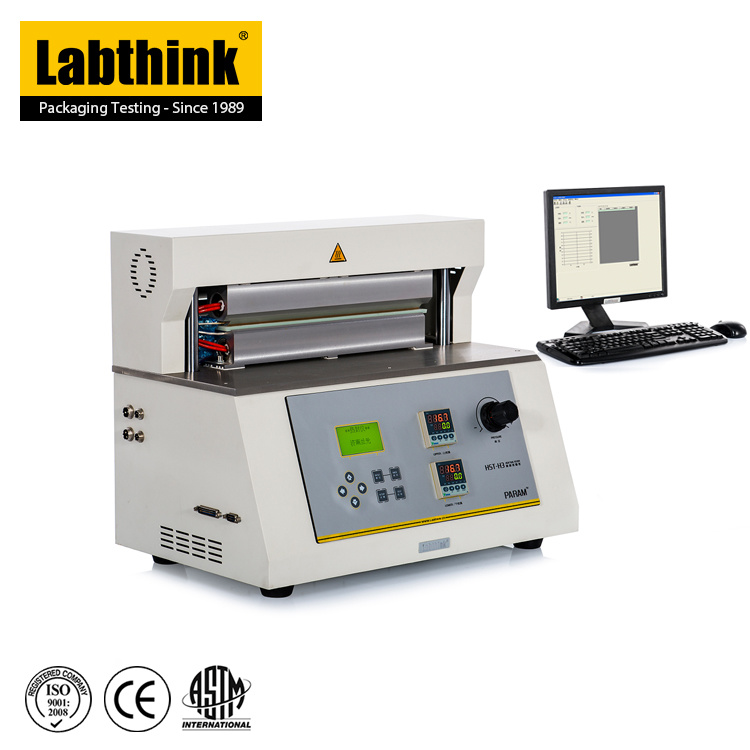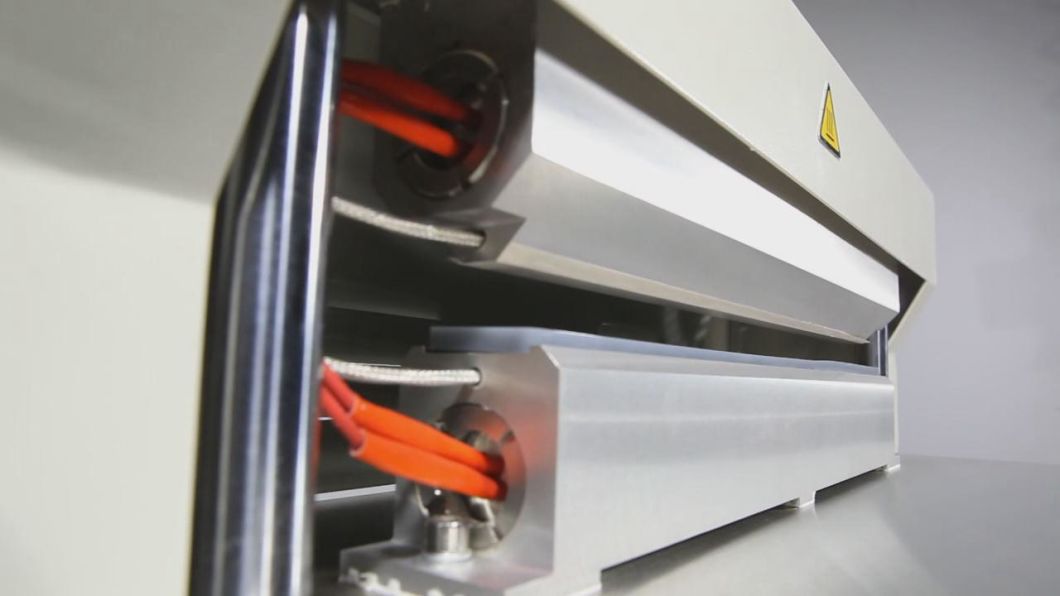Laboratory Heat Seal Strength Tester
HST-H3 Heat Seal Tester (Laboratory Heat Sealer) can be used to seal specimen for further determination of seal parameters of basic films, laminated films, coating paper and other heat sealing laminated films according to the requirement of related standards.
Features
- Digital P.I.D. temperature control technology ensures the preset temperature to be reached rapidly without any fluctuation
- Wide range control of temperature, pressure and time that meet various test conditions
- Manual or pedal switch, as well as anti-scald design provides convenient and safe operating environment
- The instrument is controlled by micro-computer with LCD, PVC operation panel and menu interface
- Professional software supports remote operation for convenient data saving, exporting, and printing
Basic Applications
|
|
|
|
Specifications
| Specifications | HST-H3 |
|---|---|
| Sealing Temperature | Room temperature ~ 300°C |
| Accuracy | ±0.2°C |
| Dwell Time | 0.1~999.9 s |
| Sealing Pressure | 0.05 MPa ~ 0.7MPa |
| Sealing Area | 330 mm x 10 mm (customization available) |
| Heating Mode | Single heating surface or double heating surfaces |
| Gas Supply Pressure | 0.5 MPa ~ 0.7MPa (outside of supply scope) |
| Port Size | Ф6 mm PU Tubing |
| Instrument Dimension | 536 mm (L) x 335 mm (W) x 413 mm (H) |
| Power Supply | 220VAC 50Hz / 120VAC 60Hz |
| Net Weight | 43 Kg |
Standards
ASTM F2029, QB/T 2358, YBB 00122003
Detailed Image


Â
Laboratory Heat Seal Strength Tester
HST-H3 Heat Seal Tester (Laboratory Heat Sealer) can be used to seal specimen for further determination of seal parameters of basic films, laminated films, coating paper and other heat sealing laminated films according to the requirement of related standards.
Features
- Digital P.I.D. temperature control technology ensures the preset temperature to be reached rapidly without any fluctuation
- Wide range control of temperature, pressure and time that meet various test conditions
- Manual or pedal switch, as well as anti-scald design provides convenient and safe operating environment
- The instrument is controlled by micro-computer with LCD, PVC operation panel and menu interface
- Professional software supports remote operation for convenient data saving, exporting, and printing
Basic Applications
|
|
|
|
Specifications
| Specifications | HST-H3 |
|---|---|
| Sealing Temperature | Room temperature ~ 300°C |
| Accuracy | ±0.2°C |
| Dwell Time | 0.1~999.9 s |
| Sealing Pressure | 0.05 MPa ~ 0.7MPa |
| Sealing Area | 330 mm x 10 mm (customization available) |
| Heating Mode | Single heating surface or double heating surfaces |
| Gas Supply Pressure | 0.5 MPa ~ 0.7MPa (outside of supply scope) |
| Port Size | Ф6 mm PU Tubing |
| Instrument Dimension | 536 mm (L) x 335 mm (W) x 413 mm (H) |
| Power Supply | 220VAC 50Hz / 120VAC 60Hz |
| Net Weight | 43 Kg |
Standards
ASTM F2029, QB/T 2358, YBB 00122003
Detailed Image


Â
Alloy pipe is a kind of seamless Steel Pipe, its performance is much higher than that of general seamless steel pipe, because this type of steel pipe contains more Cr, its high temperature resistance, low temperature resistance, corrosion resistance performance is much better than other Steel pipe, so the alloy pipe is widely used in petroleum, aerospace, chemical, electric power, boiler, military and other industries.
Alloy steel is steel that is alloyed with a variety of elements in total amounts between 1.0% and 50% by weight to improve its mechanical properties. Alloy steels are broken down into two groups: low-alloy steels and high-alloy steels. The difference between the two is somewhat arbitrary: Smith and Hashemi define the difference at 4.0%, while Degarmo, et al., define it at 8.0%.Most commonly, the phrase "alloy steel" refers to low-alloy steels.
Seamless Steel Pipe,Alloy Seamless Steel Pipe,Carbon Seamless Steel Tube
Shandong Guanzhou Iron and Steel Group Co., Ltd. , https://www.guanzhousteel.com